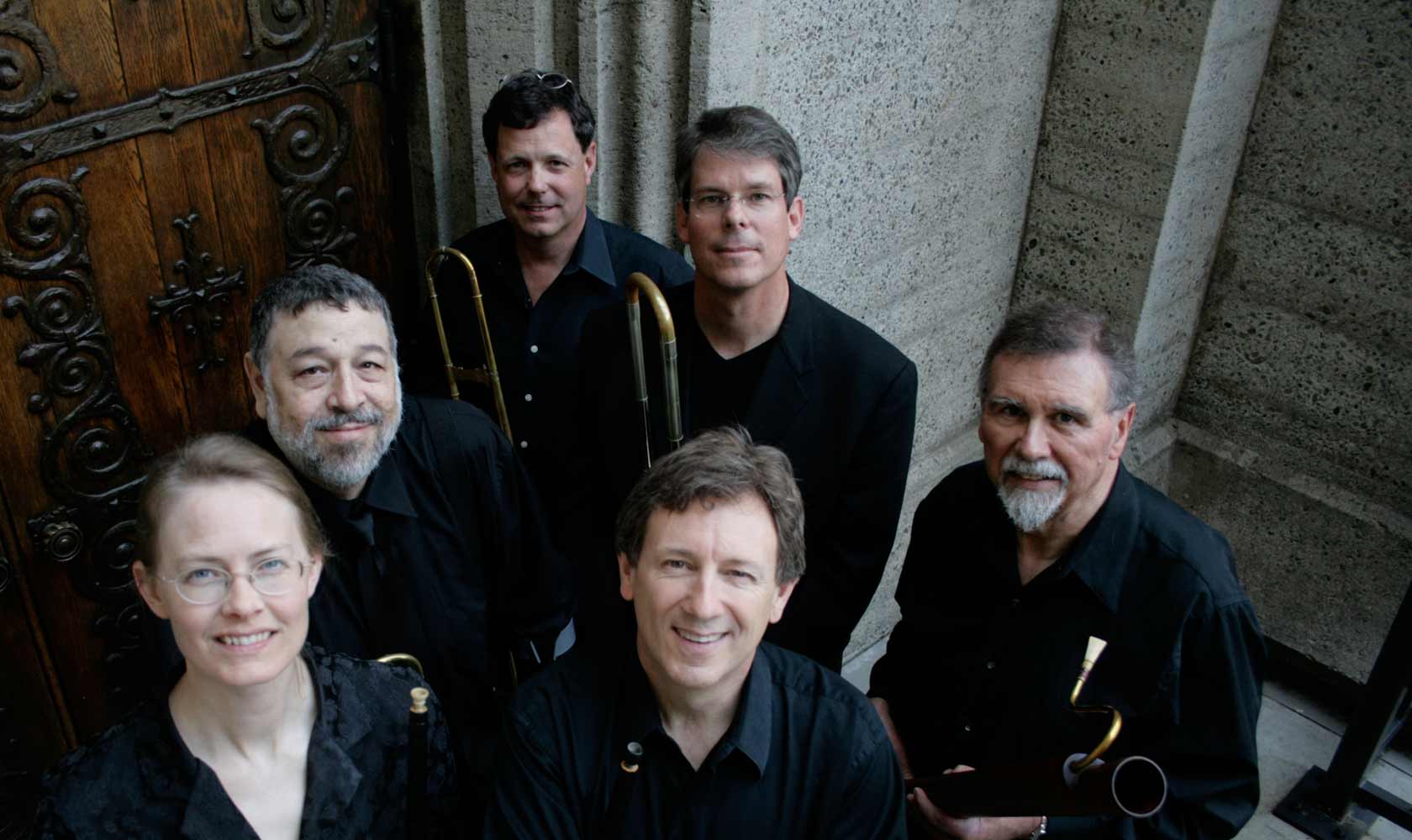The Whole Noyse
Stephen Escher Richard Van Hessel Sanford Stadtfeld Herbert Myers with Alexandra Opsahl
The Whole Noyse is celebrating its twenty-sixth year as one of the country's leading early brass ensembles. Based in the San Francisco Bay Area, the group models itself after the versatile wind bands of the sixteenth and seventeenth centuries; its primary instruments are cornetts, sackbuts, and curtal. In keeping with the variety of instrumentation expected of early players, its members double on a number of other early instruments, making use of recorders, flutes, crumhorns, shawms, slide trumpet, gittern, violin, and viola. The group takes its name from a term from Renaissance England, when a musical ensemble was called a "noise" (usually spelled "noyse" at the time); a quintet was then known as a "whole noyse."
In 2010, the 400th anniversary of the publication of Monteverdi's Vespro della Beata Vergine, The Whole Noyse was invited to participate in more than a dozen performances of the work in cities around the US and Canada, including San Francisco, Los Angeles, San Diego, Davis, Austin, San Antonio, Vancouver, Calgary, Honolulu, Houston, and Dallas. The group has collaborated with some of North America's most respected early music ensembles, including Magnificat, The King's Noyse, The Newberry Consort, Ars Lyrica, and Sex Chordae Consort of Viols, as well as a number of choirs, including the Vancouver Cantata Singers, Pro Coro Canada, San Francisco Choral Artists, Schola Cantorum, and AVE. The ensemble participated in a staged performance of Monteverdi's Orfeo with Pro Coro Canada in Edmonton in 2008, and it premiered a composition, Marina, written exclusively for it, along with the San Francisco Choral Artists, by Bay Area composer Ted Allen in 2009.
The group has performed alone on the concert series of numerous early music societies and in other venues. Its solo recording, Lo Splendore d'Italia, is available on the Helicon label. It can also be heard on recordings by Magnificat, the San Francisco Bach Choir, and the Vancouver Cantata Singers of major works of the seventeenth century; the Vancouver Cantata Singers' CD Venetian Vespers of 1640 was nominated for a Juno Award and won the Outstanding Choral Award from the Association of Canadian Choral Conductors.

